Dr. Le Hoang Phuc (30 years old) and his colleagues at RMIT University (Australia) created a model of microscopic spikes engraved on titanium implants to protect patients from bacteria and fungi without the need for drugs.
Since 2020, scientists have been conducting research on the surface interactions between different strains of harmful fungi on nanostructured materials. New research has demonstrated that rough surfaces with microscopic structures inspired by the antibacterial spikes on insect wings (cicadas, dragonflies) effectively combat drug-resistant superbugs, including fungi. The work was published in the journal Advanced Materials Interfaces in early September. The group of scientists then also sought to design titanium micro-spikes to protect patients from bacteria and fungi without the need for drugs.
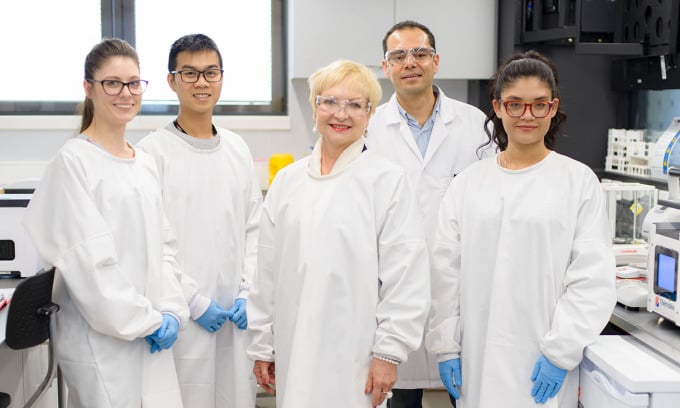
The Multifunctional Mechanical Antibacterial Materials Research Group (from left to right), Denver Linklater, Le Hoang Phuc, Elena Ivanova, Arturo Aburto-Medina, Karolline De Sousa. Photo: RMIT University
The team’s approach focuses on eliminating microorganisms on contact, thereby limiting chemical intervention. Phuc and team member Dr. Denver Linklater experimented with several microscopic titanium cylinder surfaces.
The specially designed spikes, which are the same height as a bacterial cell, were applied to the surface of titanium implants and tested for their effectiveness in killing multidrug-resistant Candida, a potentially fatal fungus that causes one in ten hospital-acquired medical device infections.
As a result, the tiny titanium spikes are able to destroy about half of the harmful cells on contact. The remaining fungal cells are no longer able to survive due to damage and cannot reproduce or cause infection.
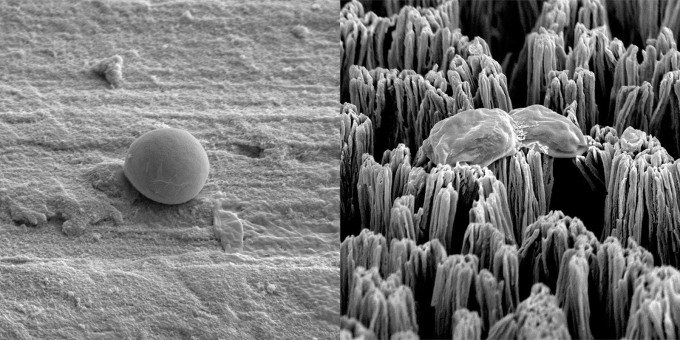
An intact Candida cell on a polished titanium surface (left) and a broken Candida cell on a micro-spiked titanium surface (right). Photo: Research team
According to Dr. Denver Linklater, protein metabolism analysis showed that damaged Candida albicans cells were extensively metabolically inhibited for up to 7 days, preventing them from reproducing and eventually dying. As for the remaining cells, they were no longer able to survive and would stop functioning (called apoptosis, or programmed cell death).
"This discovery demonstrates how engineered antifungal surfaces can prevent the formation of biofilms from dangerous, multidrug-resistant yeasts," said Professor Elena Ivanova, one of the first to study the ability to kill bacteria on insect wings.
Dr. Phuc said that the titanium micro-spikes are in the feasibility testing phase. The team also aims to test the antifungal properties of this model against different strains of microorganisms to optimize the micro-spikes size for optimal anti-microbial and anti-bacterial effectiveness.
Nhu Quynh
Source link




![[Photo] 60th Anniversary of the Founding of the Vietnam Association of Photographic Artists](/_next/image?url=https%3A%2F%2Fvphoto.vietnam.vn%2Fthumb%2F1200x675%2Fvietnam%2Fresource%2FIMAGE%2F2025%2F12%2F05%2F1764935864512_a1-bnd-0841-9740-jpg.webp&w=3840&q=75)
![[Photo] National Assembly Chairman Tran Thanh Man attends the VinFuture 2025 Award Ceremony](/_next/image?url=https%3A%2F%2Fvphoto.vietnam.vn%2Fthumb%2F1200x675%2Fvietnam%2Fresource%2FIMAGE%2F2025%2F12%2F05%2F1764951162416_2628509768338816493-6995-jpg.webp&w=3840&q=75)


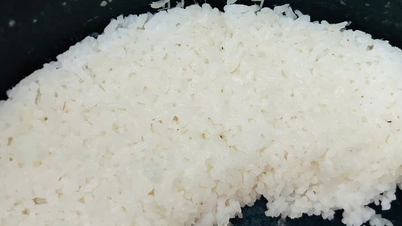



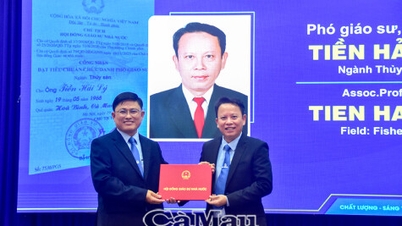










































































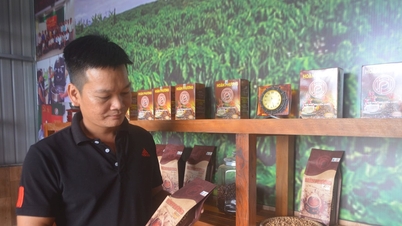

























Comment (0)